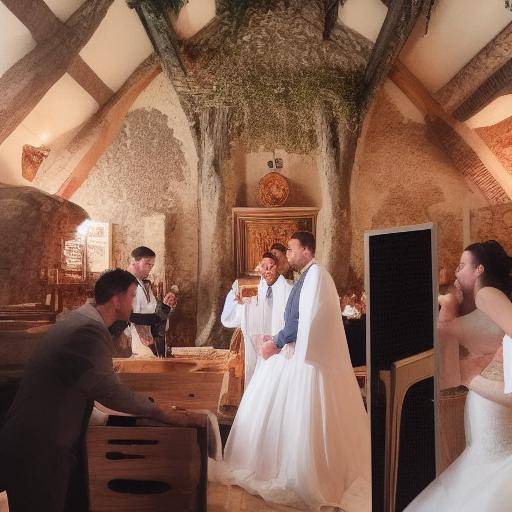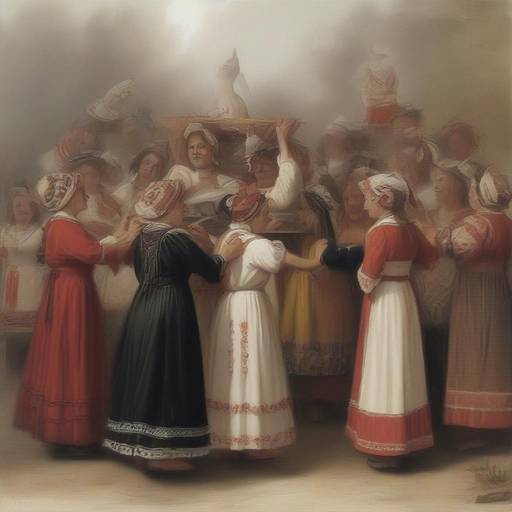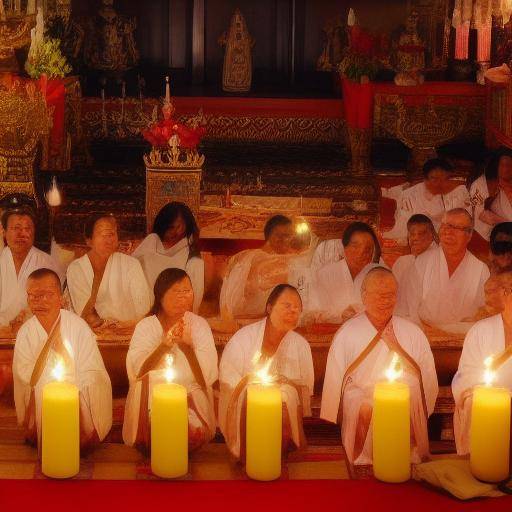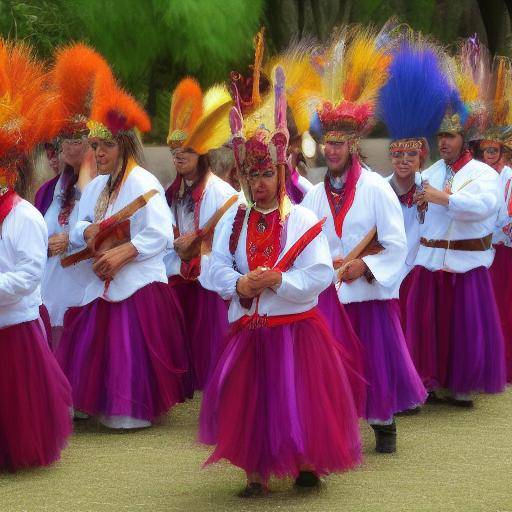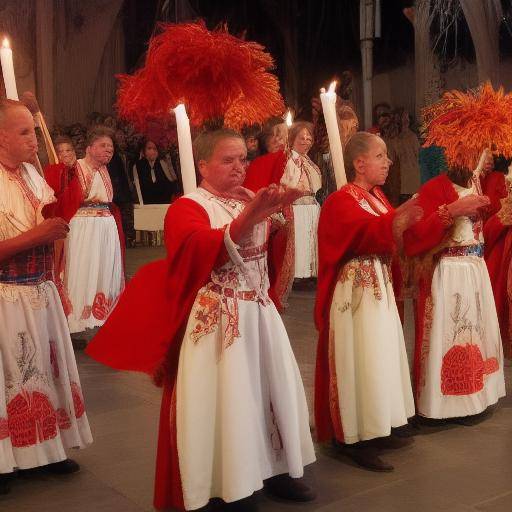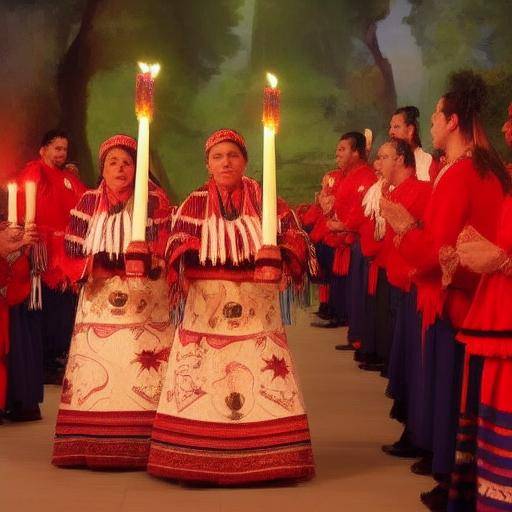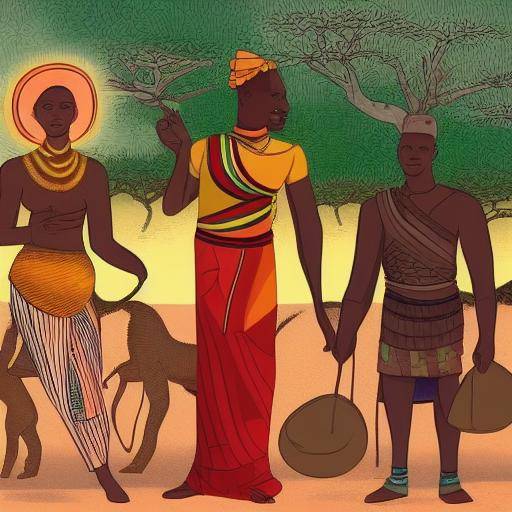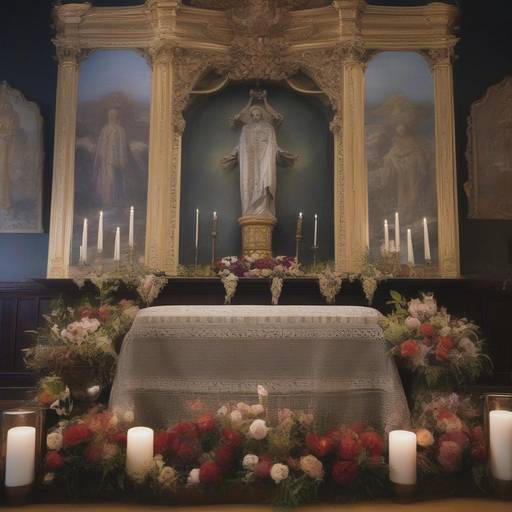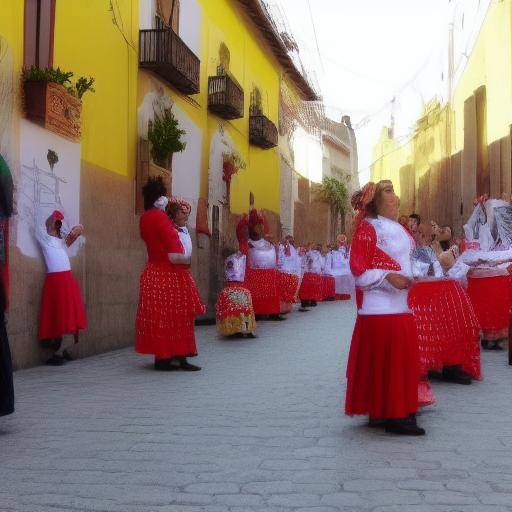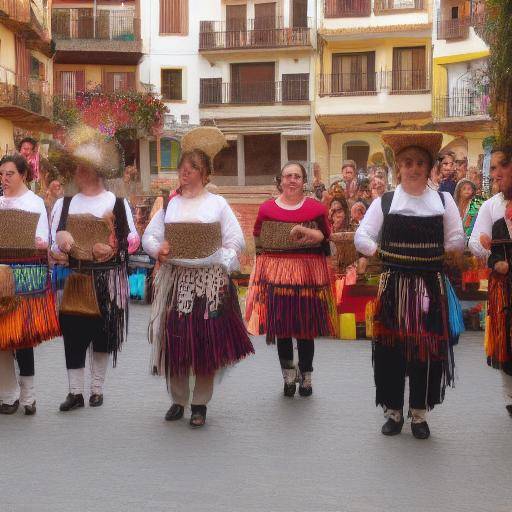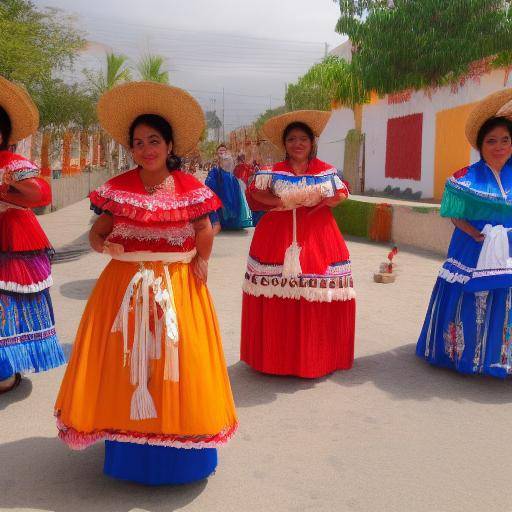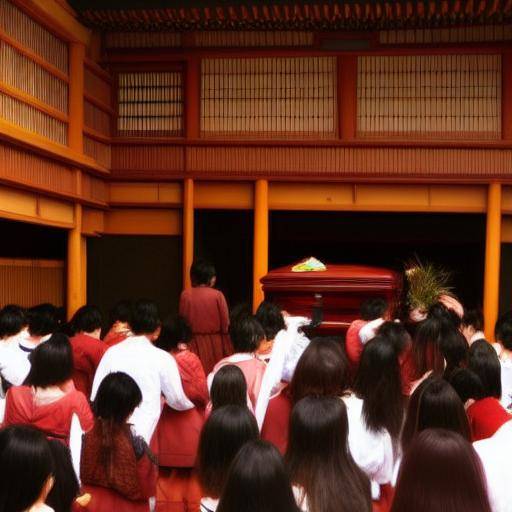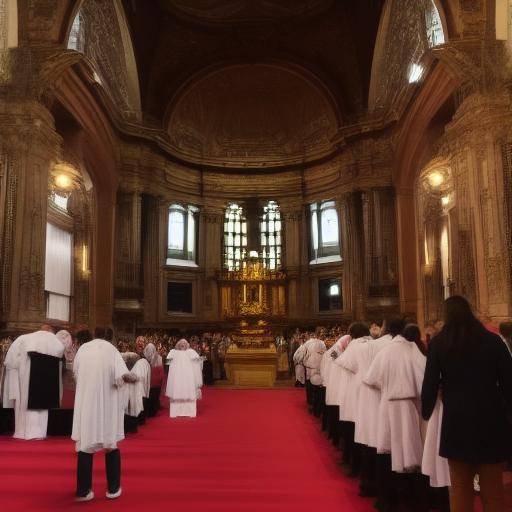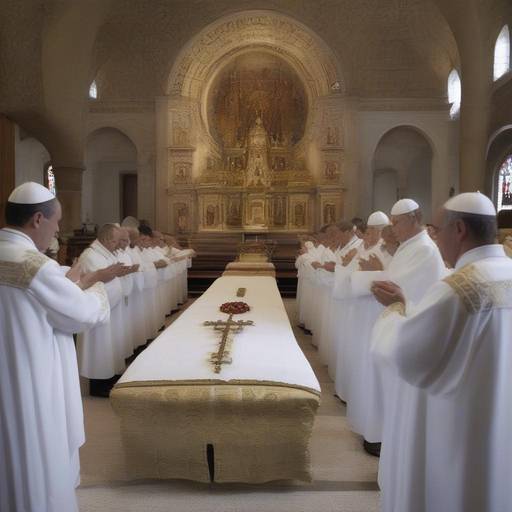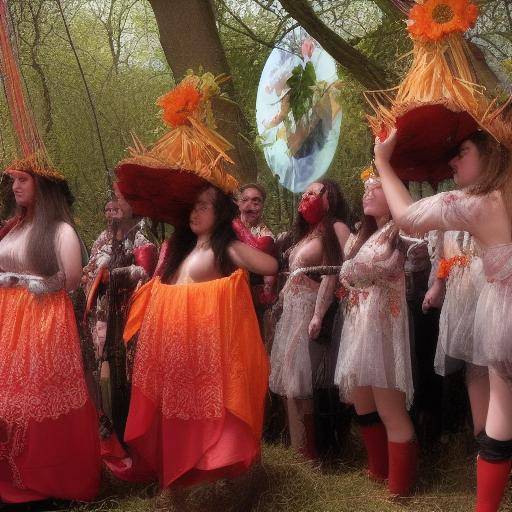
The rites of passage, also known as "samskaras" in Hindu culture, are a set of sacred ceremonies that mark significant transitions in a person's life. These rituals, rooted in the rich culture and traditions of Hinduism, have a profound social, spiritual and personal significance. In this article, we will explore in depth the rites of passage in Hindu culture, its meaning, historical evolution, contemporary practices, and its relevance in modern society.
Introduction
The rites of passage in Hindu culture have been an integral part of the daily and spiritual life of millions of people for millennia. These rituals transcend geographical and cultural divisions, a living testimony of the rich heritage of Hinduism. Through this article, we will discover the beauty and depth of these rituals, as well as their relevance today.
History and Background
The rites of passage in Hindu culture have their roots in ancient Vedic texts, which have traced the way for spiritual realization and material well-being. These rituals have evolved over the centuries, adapting to social and cultural changes, and maintaining their spiritual essence.
Origins and Evolution
The rites of passage in Hindu culture go back to the Vedas, the oldest texts of India, where ceremonies are mentioned to mark birth, youth, marriage, fulfillment of social duties and old age. These rituals have undergone changes over time, adapting to the changing needs of society while maintaining their spiritual significance.
Cultural and Spiritual Importance
These rituals not only fulfill a social function, but are also imbued with spiritual and transcendental meaning. The realization of the rites of passage is considered essential to balancing material and spiritual life, preparing individuals to assume their roles in society with responsibility and virtue.
Analysis in Deep
Benefits and Challenges
The rites of passage in Hindu culture offer many benefits, such as the consolidation of family ties, the promotion of discipline and the sense of responsibility in individuals, and the promotion of social harmony. However, they also pose challenges in the current context, where traditions are combined with modern demands.
Current trends
In contemporary society, there is a revival of the rites of passage in Hindu culture, with a renewed interest in preserving and revitalizing these ancestral practices. Rituals adapt to modern realities, integrating technology and innovation to maintain their relevance in everyday life.
Comprehensive review
Applications and Best Practices
The adaptation of the rites of passage in the modern era poses an opportunity to identify best practices to preserve the authenticity of rituals while incorporating contemporary needs. The preservation of these rituals is essential to ensure their continuity and relevance in the future.
Perspectives of Experts and Research
The analysis of experts and current research reveals the importance of preserving the rites of passage in Hindu culture as a means of strengthening cultural identity and fostering social cohesion. This detailed exploration provides us with valuable knowledge of its importance in today's society.
Comparative analysis
The rites of passage in Hindu culture are distinguished by their symbolic and spiritual wealth, providing a sense of sacredness and purpose to the vital transitions of individuals. By comparing these rituals with other passing practices in different cultures, we can appreciate their uniqueness and universality, as well as identify areas of convergence and divergence.
Practical Tips and Accessional Tips
Tips for Participating in Step Rites
- Before participating in a rite of passage in Hindu culture, it is important to investigate and understand its meaning and protocol.
- Respecting traditions and following the indications of religious or family leaders is essential for respectful participation.
- To maintain an open and receptive attitude towards the spiritual and cultural teachings transmitted during rituals.
- Show gratitude and respect to the hosts of the passing rite, recognizing the importance and significance of the event.
Industry Perspectives and Expert Reviews
Current Reflections
The reflections of experts and opinion leaders provide a profound insight into the evolution of the rites of passage in Hindu culture, as well as the future implications of their practice and preservation.
Case Studies and Practical Applications
Impact on Cotidian Life
Case studies show how the rites of passage in Hindu culture influence everyday life and communities, highlighting their role in preserving cultural identity and strengthening family ties.
Future Trends and Predictions
Future Outlook
Emerging trends suggest that the rites of passage in Hindu culture will remain relevant in the future, adapting to changing needs while continuing to provide a sense of cultural and spiritual root in modern society.
Conclusions
The rites of passage in Hindu culture transcend time and space, connecting generations through timeless meanings and practices. In understanding its importance, we can appreciate the depth and richness of Hindu culture and its impact on contemporary society. The passing rituals not only mark the vital transitions, but are also a concrete manifestation of wisdom and spiritual vision that enrich human life.
Frequently asked questions
What are the highlights of the Hindu culture?
The most prominent rites of passage in the Hindu culture include the Garbhadhana (conception), the Pumsavana (ceremony for a male child), the Simantonnayana (part and care of the child), the Namakarana (child's name), the Annaprashana (solid feeding for the child), the Chudakarana (child's haircut), the Upperanayana (strimonyana).
What is the importance of preserving the rites of passage in Hindu culture?
The preservation of the rites of passage in Hindu culture is fundamental to keeping alive the rich cultural and spiritual heritage, transmitting values, traditions and wisdom to future generations. In addition, these rituals foster social cohesion and strengthen family ties, promoting a greater understanding of the identity and purpose of life.
How have the rites of passage evolved in Hindu culture in the modern era?
In the modern era, the rites of passage in Hindu culture have experienced significant evolution to adapt to contemporary needs and realities. Although rituals continue to maintain their sacred and spiritual character, technological aspects and innovative practices have been integrated to ensure their continuity and relevance in today's society.
What is the role of the rites of passage in the Hindu cultural identity?
The rites of passage play an essential role in the preservation and promotion of Hindu cultural identity by transmitting spiritual values, traditions and teachings. These rituals not only reflect the richness of Hindu culture, but also foster a sense of belonging and root in the community, thus strengthening cultural identity in the global context.
How can non-Indians learn and participate respectfully in Hindu passage rites?
For non-Indians interested in learning and participating respectfully in Hindu rites, it is essential to seek the guidance and consent of religious authorities or Hindu families. Showing sincere respect for traditions and beliefs is essential, as well as maintaining an open and humble attitude to learn about the significance and importance of rituals.
How can the rites of passage in Hindu culture influence contemporary society?
The rites of passage in Hindu culture have the potential to positively influence contemporary society by fostering values such as respect for the elderly, family unity, social responsibility and balance between material and the spiritual. In addition, these rituals can strengthen community ties and promote a sense of purpose and meaning in personal and collective life.
Conclusion
In conclusion, the rites of passage in Hindu culture are a tangible manifestation of the spiritual, cultural and social wealth of Hinduism. Its importance lies in the preservation of ancestral traditions, the transmission of fundamental values and the celebration of vital transitions. By understanding the depth of these rituals, we can appreciate its relevance in contemporary society and its ability to enrich and strengthen the social and spiritual fabric. Their respectful preservation and practice are vital to ensure that future generations continue to benefit from their timeless wisdom.
With this article, it is expected to have provided a profound and understanding view on the rites of passage in Hindu culture, highlighting its importance, evolution and relevance in the current world.
Remember that the rites of passage in Hindu culture are an integral part of Hindu tradition and spirituality, so it is essential to address them with respect and openness.







